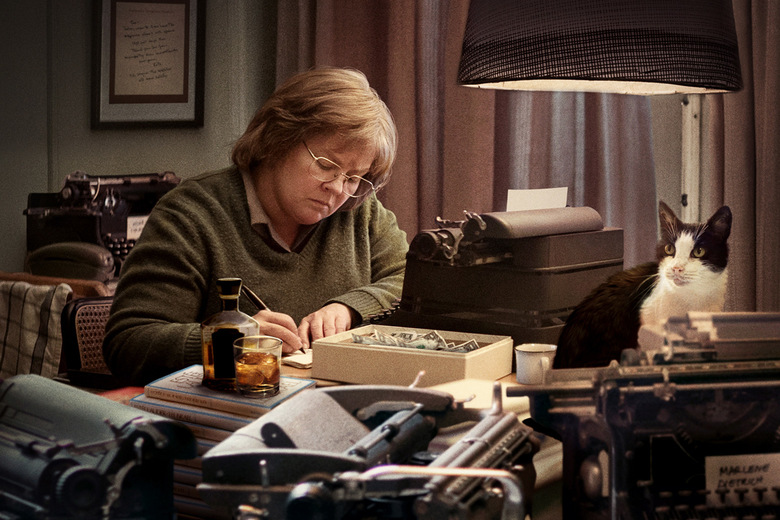Certain movies out there are unique in that they make the act of living through this world more pleasurable. They may remind you of the brutality around us but at their heart is a message of hope and goodness that never feels contrived or generic but rather achingly human. Films like “Red Beard” and “Lucky” fall in this vein, and so does “Can you ever forgive me?”.
The film is based on the events that transpired around the author Lee Israel, who took to forging and selling historical letters of interest after her biographical work fell out of popularity. Israel, played wonderfully by Melissa McCarthy, is a tough character to understand at first but not one that isn’t entirely un-relatable. She touts her independence but at the same time is immeasurably lonely, she doesn’t have many friends, feeling uncomfortable with the writing society around her, but is able to strike up a friendship with Jack Hawk (Richard E. Grant), a person who she remembers for having mistaken a closet full of expensive furs for a toilet. She is a wave of contradictions but I sympathized with her. McCarthy, and the director Heller, form the story effortlessly, they make us understand this difficult woman by carefully detailing her.
When done like this, Israel’s story begins to take on a universality. The film by dealing with Israel also comes to be about universal themes like loneliness, friendship, loss and hope. That it does this in a way that never demeans the story or the person at its’ heart elevates the film from others that simply seek to tell a feel-good message.
It’s funny how from watching these films that showcase such intimate and vulnerable moments of real people’s lives you sometimes get the feeling as though you lived through it with them. It’s a kind of magic that cinema can do but of course it’s simply not at all true. Although from this perspective, filmmaking can be seen as an art of forgery or imitation not unlike the letter forgery of Israel. There’s a scene in the film where Israel brings in a forgery to sell at a book shop and the owner asks her if it’s the real thing and Israel replies “I assume so”, the owner says “Well, most people will believe anything you tell them anyway…”. Watching the film, I wondered what the real Lee Israel would have thought of McCarthy’s impression of her ?




